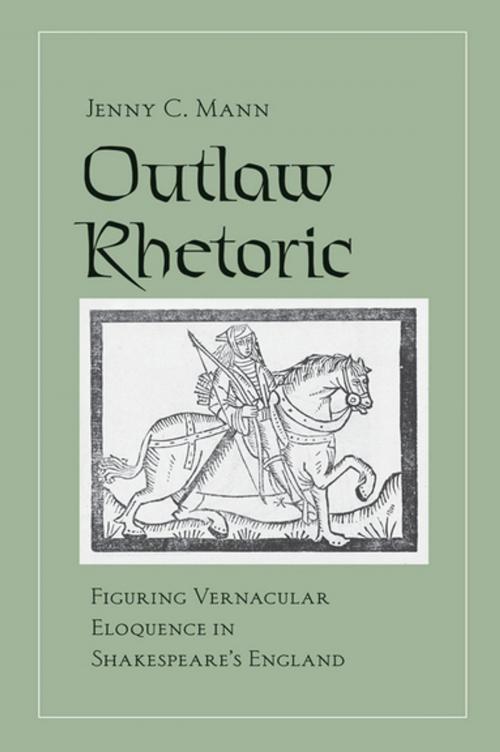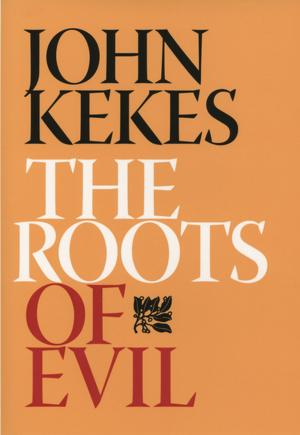Outlaw Rhetoric
Figuring Vernacular Eloquence in Shakespeare's England
Fiction & Literature, Literary Theory & Criticism| Author: | Jenny C. Mann | ISBN: | 9780801464577 |
| Publisher: | Cornell University Press | Publication: | December 15, 2009 |
| Imprint: | Cornell University Press | Language: | English |
| Author: | Jenny C. Mann |
| ISBN: | 9780801464577 |
| Publisher: | Cornell University Press |
| Publication: | December 15, 2009 |
| Imprint: | Cornell University Press |
| Language: | English |
A central feature of English Renaissance humanism was its reverence for classical Latin as the one true form of eloquent expression. Yet sixteenth-century writers increasingly came to believe that England needed an equally distinguished vernacular language to serve its burgeoning national community. Thus, one of the main cultural projects of Renaissance rhetoricians was that of producing a "common" vernacular eloquence, mindful of its classical origins yet self-consciously English in character. The process of vernacularization began during Henry VIII's reign and continued, with fits and starts, late into the seventeenth century. However, as Jenny C. Mann shows in Outlaw Rhetoric, this project was beset with problems and conflicts from the start.
Outlaw Rhetoric examines the substantial and largely unexplored archive of vernacular rhetorical guides produced in England between 1500 and 1700. Writers of these guides drew on classical training as they translated Greek and Latin figures of speech into an everyday English that could serve the ends of literary and national invention. In the process, however, they confronted aspects of rhetoric that run counter to its civilizing impulse. For instance, Mann finds repeated references to Robin Hood, indicating an ongoing concern that vernacular rhetoric is "outlaw" to the classical tradition because it is common, popular, and ephemeral. As this book shows, however, such allusions hint at a growing acceptance of the nonclassical along with a new esteem for literary production that can be identified as native to England. Working across a range of genres, Mann demonstrates the effects of this tension between classical rhetoric and English outlawry in works by Spenser, Shakespeare, Sidney, Jonson, and Cavendish. In so doing she reveals the political stakes of the vernacular rhetorical project in the age of Shakespeare.
A central feature of English Renaissance humanism was its reverence for classical Latin as the one true form of eloquent expression. Yet sixteenth-century writers increasingly came to believe that England needed an equally distinguished vernacular language to serve its burgeoning national community. Thus, one of the main cultural projects of Renaissance rhetoricians was that of producing a "common" vernacular eloquence, mindful of its classical origins yet self-consciously English in character. The process of vernacularization began during Henry VIII's reign and continued, with fits and starts, late into the seventeenth century. However, as Jenny C. Mann shows in Outlaw Rhetoric, this project was beset with problems and conflicts from the start.
Outlaw Rhetoric examines the substantial and largely unexplored archive of vernacular rhetorical guides produced in England between 1500 and 1700. Writers of these guides drew on classical training as they translated Greek and Latin figures of speech into an everyday English that could serve the ends of literary and national invention. In the process, however, they confronted aspects of rhetoric that run counter to its civilizing impulse. For instance, Mann finds repeated references to Robin Hood, indicating an ongoing concern that vernacular rhetoric is "outlaw" to the classical tradition because it is common, popular, and ephemeral. As this book shows, however, such allusions hint at a growing acceptance of the nonclassical along with a new esteem for literary production that can be identified as native to England. Working across a range of genres, Mann demonstrates the effects of this tension between classical rhetoric and English outlawry in works by Spenser, Shakespeare, Sidney, Jonson, and Cavendish. In so doing she reveals the political stakes of the vernacular rhetorical project in the age of Shakespeare.















